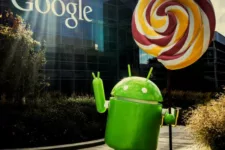Google was handed a major victory by a US jury on 26 May, in the long running copyright battle with Oracle Corp over Android software used to run most of the world’s smartphones.
Google’s claim that its use of Oracle’s Java development platform to create Android was protected by the ‘Fair-use’ provision under copyright law was upheld by the jury, which meant Oracle would not gain $9 billion in damages as requested.
Oracle executives commented that they believed Google had developed the Android software by “copying core technology” from Java to rush into the mobile market, and they would appeal.
In the retrial, Oracle claimed copyright infringement, while Alphabet’s Google unit said that it should be able to use Java without paying a fee under fair use.
Under US copyright law, “fair use” allows limited use of material without acquiring permission from the rights holder for purposes such as research.
Google relied on high profile witnesses like executive Chairman of Alphabet, Eric Schmidt, to convince the jury that it had used Java to create its own intellectual property.
Google’s statement on the verdict
A win for the Android ecosystem, for the Java programming community, and for software developers who rely on open and free programming languages to build innovative consumer products
A trial in 2012 ended in a deadlocked jury.
After the first trial, US District Judge William Alsup ruled that the elements of Java at issue were not eligible for copyright protection at all. A federal appeals court disagreed in 2014, ruling that computer language that connects programs – known as application programming interfaces, or APIs – can be copyrighted.
A flood of copyright lawsuits has failed to materialise in the two years since the federal appeals court ruling, suggesting Oracle’s lawsuit will not ultimately have a wide impact on the sector.
During retrial, Oracle attorneys deemed Google’s defenses the “fair-use excuse.”
(Jim Christie is a writer at Reuters. This article has been published in collaboration with Reuters.)








